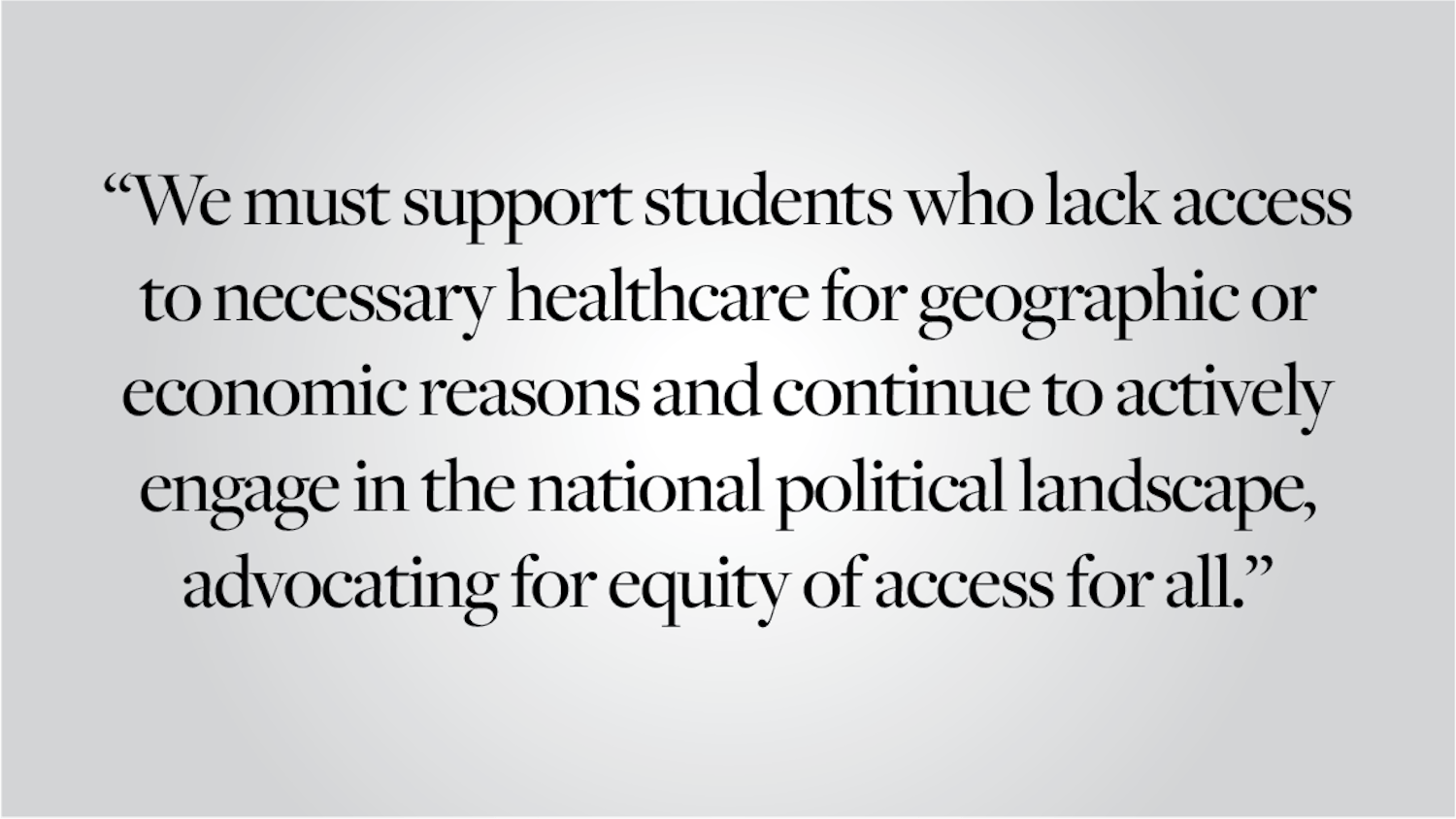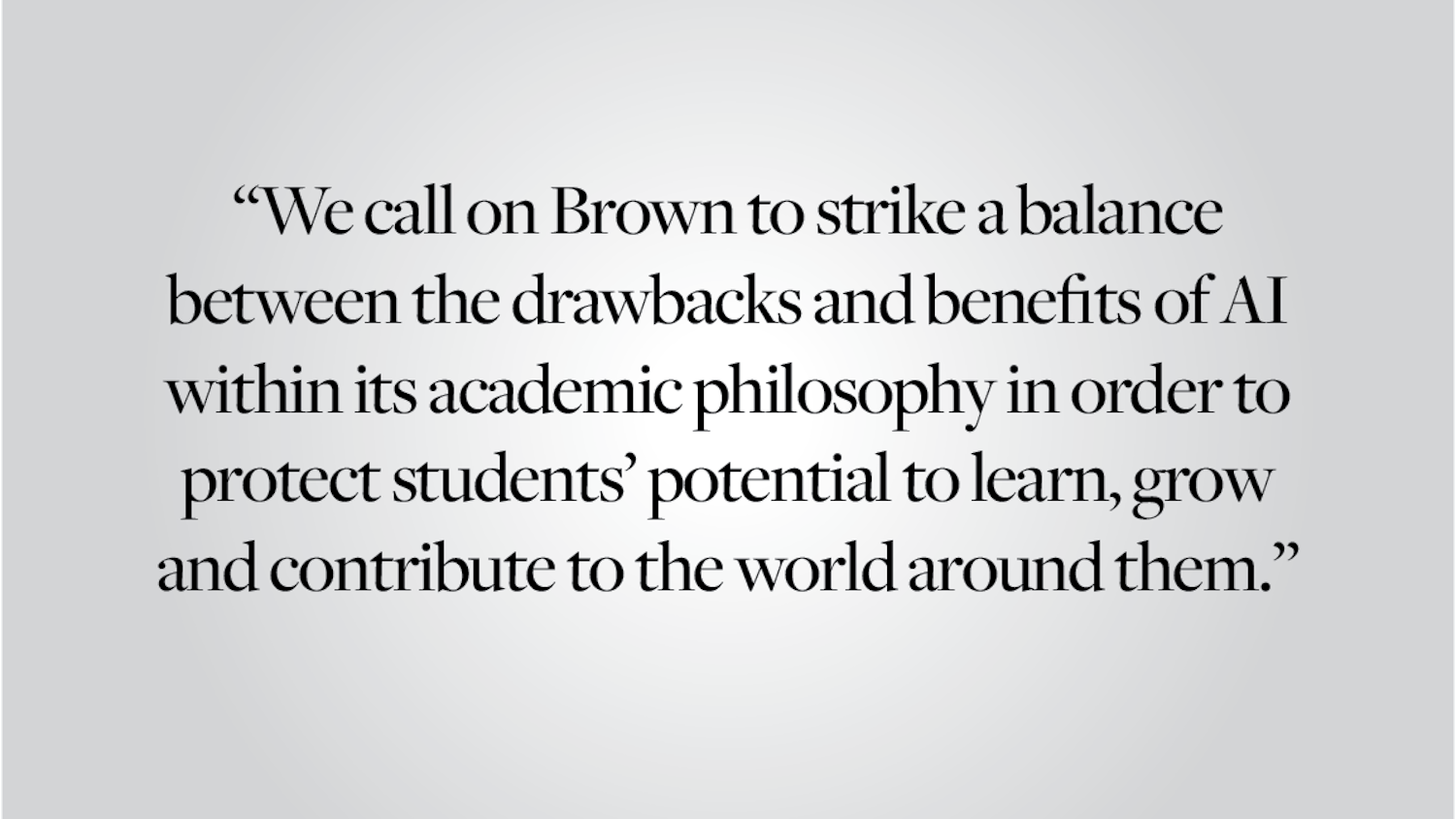Almost a year has passed since former president Ruth Simmons recommended the University continue its campus ban on the Reserve Officers' Training Corps. These recommendations engendered controversy and discussion both on campus and nationwide at the time, but recently, they have faded from the public eye. In light of a recent Herald article about the state of ROTC on campus ("ROTC looks to increase campus involvement," Sept. 26), we would like to revisit the decision that was made last October and urge President Christina Paxson to reconsider the campus ban on ROTC.
Last year, The Herald published an editorial ("A plea for ROTC's reinstatement," Oct. 19, 2011) that disagreed with the ban for several reasons, and this rationale is still applicable. The campus ban furthers a sense of separation between the University and the rest of the nation, particularly from a socioeconomic perspective. Though cross-institutional partnerships exist, they are logistically challenging, and only options for Army ROTC exist in Providence. These logistical concerns help explain why there are only a handful of students involved in Army ROTC at Providence College or Bryant University, and no Brown students involved in Navy or Air Force ROTC at all. To top it all off, there are only six student veterans attending the University.
We are quite proud of Brown's reputation as an outspoken liberal institution. But this reputation may discourage students with other political beliefs or backgrounds from matriculating at Brown. This is a distinct loss to the community, as we could all benefit from thoughtful and rational debates with those with whom we disagree. While we do not want this reputation to change - nor do we think it will - we are concerned that the symbolism of the campus ban dissuades potential ROTC students who could contribute to political and intellectual diversity on campus from attending the University.
Furthermore, we believe that allowing ROTC on campus would further efforts to increase socioeconomic and geographic diversity. Many high school students interested in ROTC specifically matriculate at universities that have these programs. Given the tuition benefits of the ROTC program, many students who look into this program have financial reasons for doing so. As The Herald's "Money Matters" series observed last spring, lack of socioeconomic diversity is still a problem for the University and perpetuates a divide in the campus community. Continuing the campus ban on ROTC promotes the notion that the University is primarily the domain of wealthy students, and reinstating ROTC could provide an avenue for increased economic diversity.
In response to the well-founded concern in the Brown community about the relationship of the military to the LGBTQ community, we agree that the policy of transgender discrimination should be halted. However, the University still receives federal funds from the military for research purposes, as well as federal funds for student financial aid. Instead of sticking our heads in the sand, we would be better served to change problematic aspects of these institutions from within. Though we appreciate the creation of an on-campus office to support veterans and help students participate in the military, we believe the symbolism of the on-campus ban sends a dangerous message to the community at large about our values. We should engage those with whom we disagree, and we should remove the campus ban on ROTC.
Editorials are written by The Herald's editorial page board. Send comments to editorials@browndailyherald.com.




